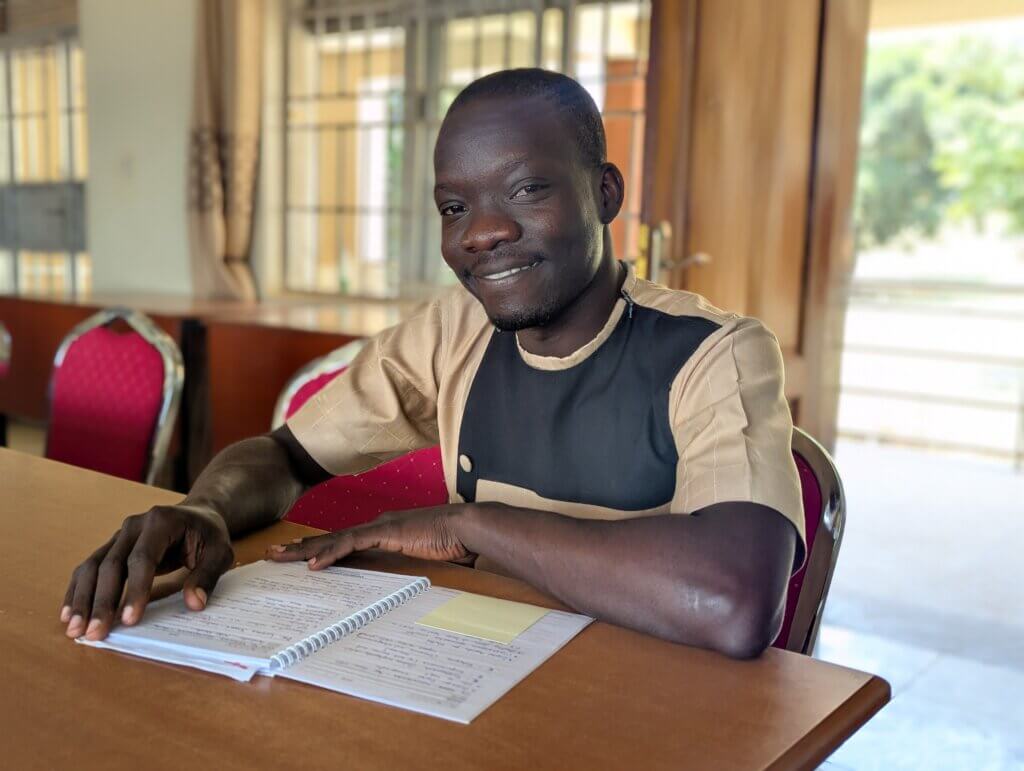23.04.25
Supporting vocational education in Uganda helps reduce inequality
“The very first word for me is “resilience”. I’ve met a number of students that come from backgrounds that are not so stable. You find them coming from backgrounds that are maybe single parent related or maybe they are totally orphaned. But they manage to succeed nonetheless,” says Joseph Kidega (pictured) about his students. Joseph is an instructor at St. Joseph’s Technical Institute in Kisubi, just on the outskirts of Ugandas capital Kampala, and he is one of the participants of Mondo’s digital competence training programme.
Joseph’s sumamry reflects the opportunities that vocational education offers to young people and to the country at large – the opportunity to succeed in the job market and create livelihood opportunities. Currently 42,6% of Uganda’s youth are not in education or employment. These are largerly youth who lack the necessary skills to be successful on the job market. Enhancing young people’s professional skills through vocational and technical education could help reduce this inequality, as it is more accessible than university education and provides practical skills that are immediately applicable in the labor market.
However, vocational and technical education is still often seen in Ugandan society as an inferior choice compared to university education. The sector is underfunded, and prejudices about its quality are widespread. Among the problems cited is the use of outdated equipment in vocational colleges. Although acquiring essential digital skills is a stated goal of Uganda’s vocational education curriculum, few schools actively use digital tools. And where computer skills are taught, there often aren’t enough resources for all students, or the skills aren’t integrated into the learning process due to a lack of internet access in schools.
Mondo is working with partners to develop solutions to improve the quality of vocational education in Uganda, particularly in the area of digital capacity. An institutional digital strategy is being created in cooperation with Tallinn University and Kyambogo University. This will provide Ugandan vocational schools with concrete steps to improve their digital skills.
Another important aspect is training instructors like Joseph Kidega. Practical trainings are held at five vocational and technical education colleges in Uganda for teachers and instructors, focusing on strengthening digital skills and change management. In addition, those who complete the training play a key role in supporting and training their colleagues in digital technologies and in developing their college’s own action plan in cooperation with the administration. Instructors benefit from this training for professional development, finding relevant information, organising online learning, and for everyday teaching.
Joseph Kidega emphasizes this last point. “We may not have fully the digital infrastructure, but at least we can start to engage the learners. It can help us to save both time and space,” he says. “We all benefit from this – the student, the teacher, and the college.”
The project is supported by the Estonian Centre for International Development (ESTDEV).
